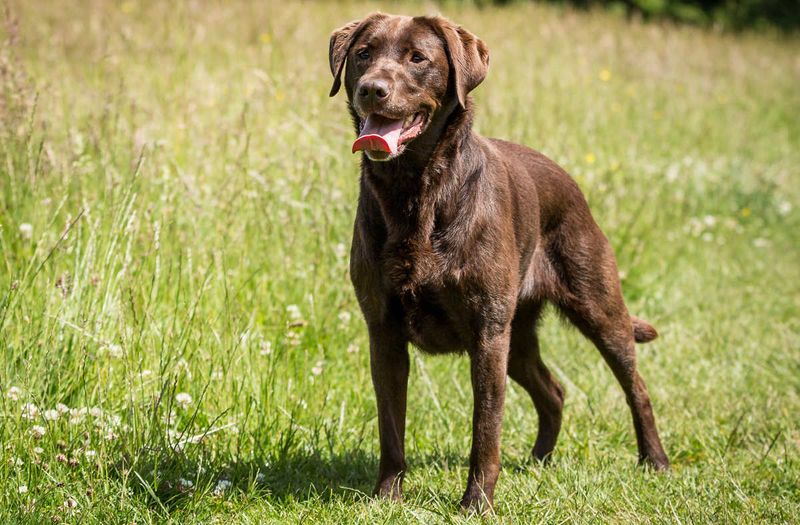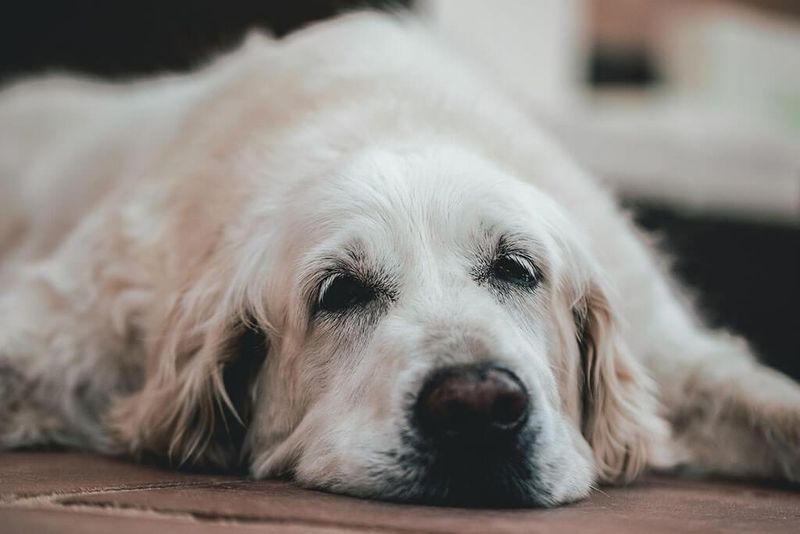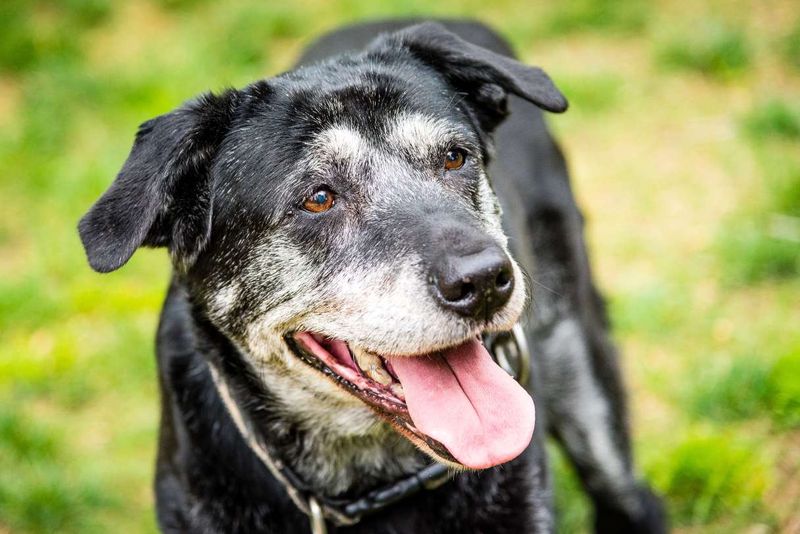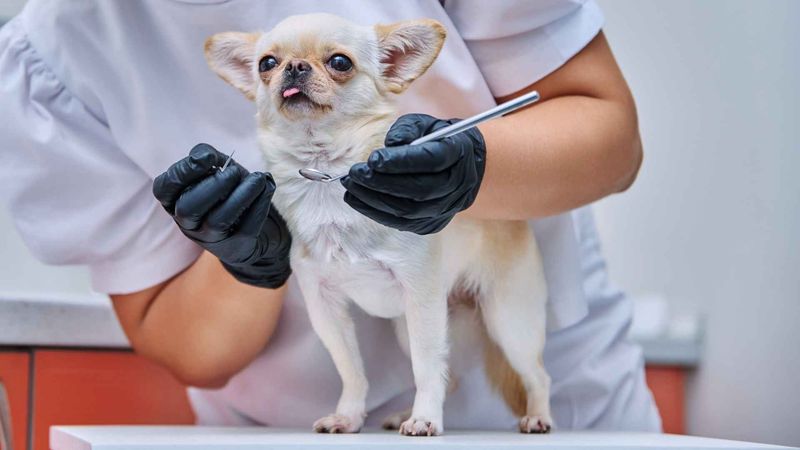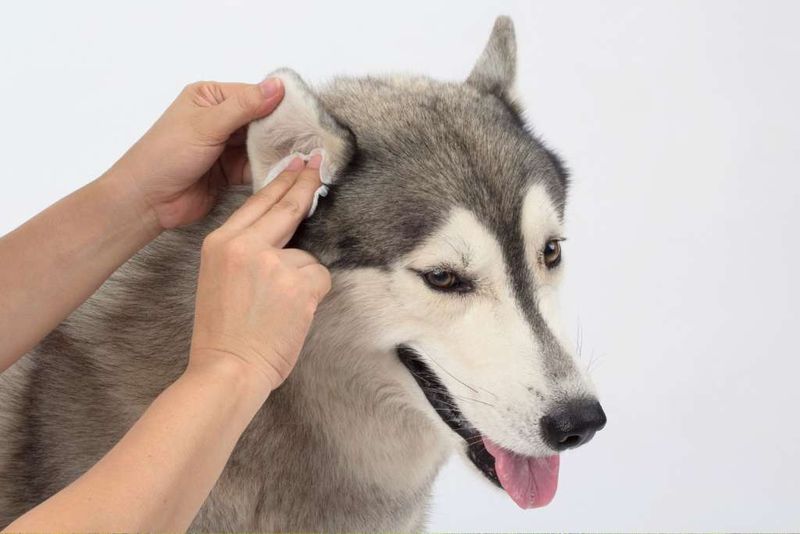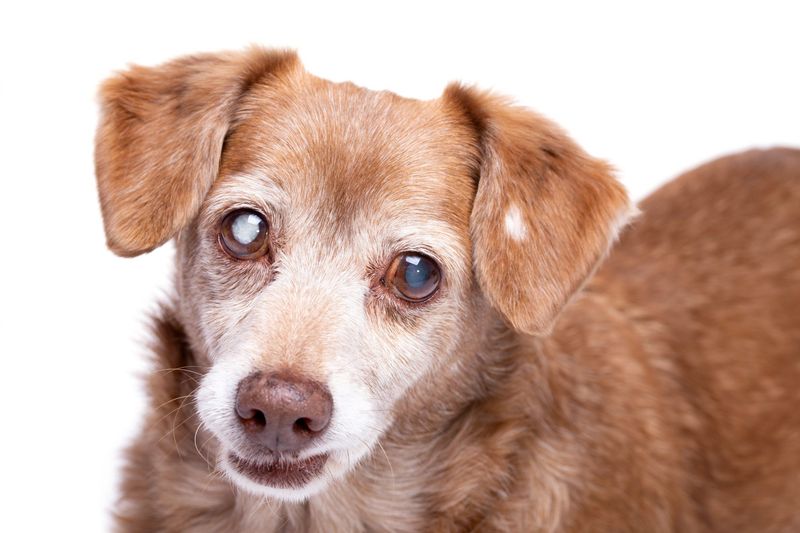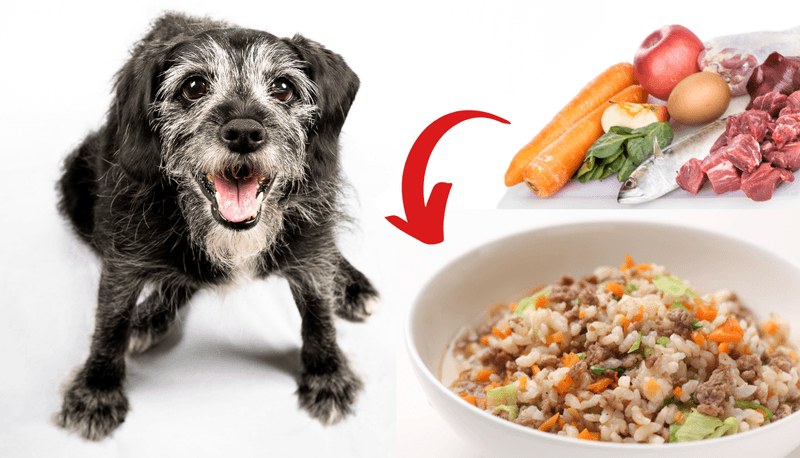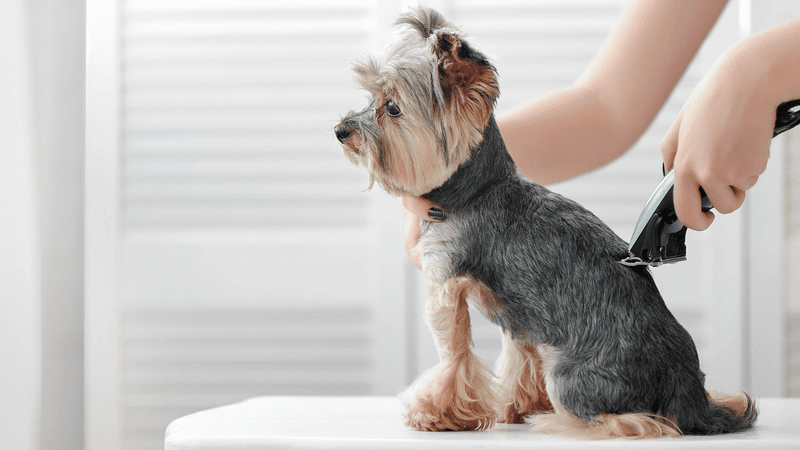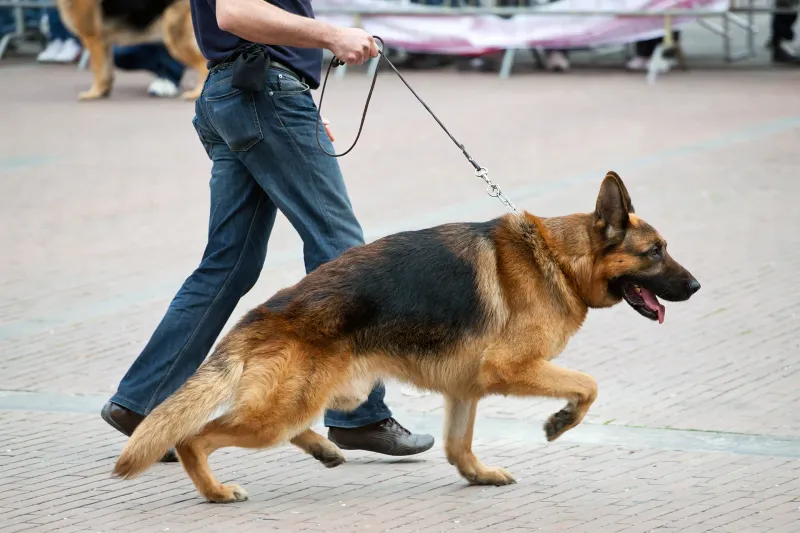As our beloved dogs age, they go through a myriad of changes that affect their physical and mental well-being. Understanding these changes is crucial to providing the best care possible. Here we explore 15 significant transformations that occur and offer practical tips for managing them effectively.
Slower Metabolism
Have you noticed your once energetic pup slowing down? Aging in dogs often brings a decrease in metabolism. This means they may gain weight more easily.
To manage this, consider adjusting their diet to lower-calorie foods. Engage them in regular, gentle exercise to keep those extra pounds at bay.
Remember, an older dog may not bounce back as quickly after vigorous activity, so moderation is key. Consult with your vet to tailor a diet plan suitable for your pet’s age and health condition. It’s all about maintaining balance in their golden years.
Joint Stiffness
Joint stiffness can turn your dog’s favorite playtime into a painful experience. As dogs age, arthritis and other joint issues become common.
Imagine your furry friend facing difficulty climbing stairs or jumping onto furniture. Providing a comfortable orthopedic bed can alleviate discomfort.
Regular vet check-ups and possibly supplements like glucosamine may offer relief. Keeping your dog’s weight in check also reduces strain on their joints. Let them enjoy gentle exercises like short walks or swimming to keep them mobile and happy.
Comfort and care go a long way in managing joint issues.
Graying Fur
Graying fur is one of the most visible signs of aging in dogs. This natural process usually starts around the muzzle and eyes.
While some may find it endearing, it’s essential to ensure your pet still feels youthful. Regular grooming can enhance their coat’s appearance.
Interestingly, the rate and onset of graying can vary greatly depending on the breed and individual genetics. Keep their coat healthy with a diet rich in omega fatty acids. Embrace the distinguished look, while ensuring they stay healthy inside and out.
Dental Health Issues
Dental problems can sneak up as your pet ages. You might notice bad breath, plaque build-up, or even gum disease.
Daily teeth brushing plays a crucial role in maintaining oral health. Providing dental treats or toys designed to clean teeth can assist.
Regular veterinary dental check-ups are vital to catch issues early. Ignoring dental hygiene can lead to further health complications. Remember, a healthy mouth contributes to overall well-being.
Keeping those canine teeth clean ensures more happy smiles in their senior years.
Reduced Hearing
Is your dog not responding to your calls as they used to? Reduced hearing is a common aging issue in dogs.
This might mean they startle more easily or don’t hear commands as well. Training with visual cues or hand signals can be very effective.
Keep their environment consistent to prevent disorientation. During walks, ensure they are on a leash to avoid any potential dangers.
Understanding and adapting to their needs will help them feel secure and loved.
Vision Changes
Vision changes, such as cataracts, can affect your dog’s ability to see clearly with age. You may notice cloudy eyes or your pet bumping into objects.
Maintain familiar surroundings to aid their navigation at home. Keeping floor spaces clear of obstacles can prevent accidents.
Routine vet visits will help monitor their eye health and address issues promptly. Understanding these vision changes ensures your furry friend remains confident and safe.
Behavioral Shifts
Aging can bring about noticeable behavioral changes in dogs. You might observe increased irritability, anxiety, or even depression.
Creating a calm and predictable environment helps alleviate stress. Engage them in relaxing activities they enjoy.
Behavioral shifts can also be a sign of underlying health issues, so consult your vet if changes appear drastic or sudden. Understanding and patience go a long way in helping them adapt to new stages of life.
Decreased Energy Levels
Has your dog traded their playful antics for more naps? A decrease in energy is common as they age.
Encourage gentle play and short, frequent walks to maintain a healthy activity level. Ensure they have a comfortable resting place for those increased nap times.
Balance is crucial to keep them from becoming too sedentary, which can lead to other health problems. Understanding their need for rest and adjusting activities accordingly helps maintain a happy, healthy lifestyle.
Changes in Appetite
You might notice your dog’s appetite shifting as they age. Some dogs eat less, while others may experience increased hunger.
Adjusting their diet to include more age-appropriate nutrients can help. Monitor their weight and consult with a vet to ensure they’re getting the right balance of food.
Sometimes, a change in feeding schedule or trying different flavors can reignite their interest in meals. Understanding and adapting to these changes ensures they stay nourished and satisfied.
Increased Sleeping Time
With age, dogs can start sleeping more, often spending over half the day napping. This is a natural part of aging.
Create a peaceful sleeping area where they can rest undisturbed. Monitoring their sleep patterns ensures any drastic changes are noted and addressed.
If their sleep seems excessive or irregular, consult a vet to rule out underlying health issues. Embracing their need for rest is part of supporting their aging journey.
Digestive Changes
Digestive changes can be a part of aging for dogs. They might experience more sensitive stomachs or irregular bowel movements.
Feeding them a diet formulated for senior dogs can help manage these issues. Consider smaller, more frequent meals to ease digestion.
Hydration also plays a crucial role, so ensure they have plenty of fresh water. Monitoring their diet closely and consulting with your vet can help maintain digestive health.
Skin and Coat Changes
As dogs age, their skin and coat can become dry and less lustrous. Regular grooming helps maintain a healthy coat and allows for early detection of skin issues.
A diet rich in vitamins and essential fatty acids supports healthy skin and coat. If skin changes seem severe, consult your vet to rule out allergies or underlying conditions.
Maintaining a grooming routine ensures they look and feel their best, even in their senior years.
Weakened Immune System
Aging can weaken a dog’s immune system, making them more susceptible to illnesses. Vaccinations and regular vet check-ups are vital to keep them healthy.
Providing a balanced diet and regular exercise supports immune function. Supplements, if recommended by your vet, can also be beneficial.
Preventive care and early detection of potential health issues play a critical role in safeguarding your pet’s well-being as they age.
Incontinence
Incontinence can become an issue as dogs age, leading to unexpected accidents. Providing quick access to outdoor areas can help manage this.
Dog diapers or pads may be necessary for severe cases. Always consult your vet to rule out underlying health conditions.
Keeping their environment clean and maintaining their dignity is important. Understanding and patience are key to managing this aspect of aging.
Cognitive Decline
Cognitive decline, sometimes referred to as canine cognitive dysfunction, can affect older dogs, similar to dementia in humans.
You might notice confusion, disorientation, or changes in social interactions. Mental stimulation through toys and gentle training can help maintain cognitive function.
Routine vet visits are essential to monitor their health. Patience and understanding enable them to navigate this challenging aspect of aging with dignity.

